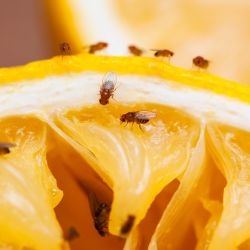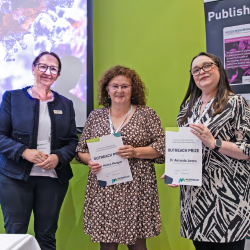Academy of Medical Sciences funds new research from emerging scientific leaders
Two biomedical sciences researchers from Northumbria University have been awarded grants to…
International
Northumbria’s global footprint touches every continent across the world, through our global partnerships across 17 institutions in 10 countries, to our 277,000 strong alumni community and 150 recruitment partners – we prepare our students for the challenges of tomorrow. Discover more about how to join Northumbria’s global family or our partnerships.
View our Global FootprintBusiness
The world is changing faster than ever before. The future is there to be won by organisations who find ways to turn today's possibilities into tomorrows competitive edge. In a connected world, collaboration can be the key to success.
More on our Business ServicesResearch
Northumbria is a research-rich, business-focused, professional university with a global reputation for academic quality. We conduct ground-breaking research that is responsive to the science & technology, health & well being, economic and social and arts & cultural needs for the communities
Discover more about our ResearchAlumni
Northumbria University is renowned for the calibre of its business-ready graduates. Our alumni network has over 246,000 graduates based in 178 countries worldwide in a range of sectors, our alumni are making a real impact on the world.
Our AlumniThe Eat Lancet Commission recommend a planetary health diet: How does your diet match up?
Daniel Commane 14/05/23
Our food system is amazing, it has gone a long way to irradicating hunger by making food cheap and bountiful in the UK. It is also making us sick and destroying our planet. The Eat-Lancet commission recommend drastic revisions in our approach to food! How does your diet match up?
If like most people in the UK you frequently eat meat, then probably not very well! Agriculture accounts for 30% of global greenhouse gas emissions, it also pollutes our waterways and destroys ecosystems, our green and pleasant land has lost half its natural biodiversity since the 1970s much of this due to intensive farming practices.
How to eat a planetary health diet?
The Eat-Lancet Commission brought together thought leaders across ecology, nutrition and politics to proffer a solution to our broken food system. One key outcome from their work was a set of dietary recommendations for planetary health. The recommendations…
1. Reduce waste: use leftovers in packed lunches and avoid over-purchasing.
2. Consume less meat: Meat can be part of a healthy sustainable diet, but red meat in particularly has a very high environmental footprint. It should be consumed on a weekly rather than a daily basis.
3. Use legumes and nuts as a source of protein.
4. Build your diet around plant foods: This advice is common to long standing dietary guidance; However, Eat-Lancet stresses fruit and vegetables more so than grains and starchy foods.
5. Prepare more of your own food: Convenience eating is inherently wasteful and may contribute to weight gain, the guidance on preparing your own food assumes a return to more traditional dietary approaches will make us healthier.
How does this diet stack up?
From a purely nutritional perspective there is a lot to like about this flexitarian approach to food consumption; the recommendations around limiting starchy foods are controversial, putting it somewhat at odds with other sets of recommendations such as the Mediterranean diet or the UKs Eatwell Plate. The healthfulness of these earlier sets of recommendations have been very well evidenced. Some work is perhaps also needed to evaluate the suitability of this food approach for nutritionally vulnerable groups.
From a practical standpoint, Eat Lancet somewhat underplays the value of convenience in our modern lives. Significantly disruptive, and therefore exceptionally brave, political intervention might be needed to overcome the barriers most people would face to enable widespread adherence.
Are the costs of not doing this too high?

Two biomedical sciences researchers from Northumbria University have been awarded grants to…

The Spring 2025 edition of Northumbria University’s newspaper is available to collect on campus…

Scientists have discovered that flies can demonstrate play-like behaviour – the first time…

Researchers from Northumbria University are helping to celebrate 200 years since the opening…

Northumbria University is one of four regional universities to receive funding to support the…

Northumbria academic, Dr Jill McKay, Associate Professor of Molecular Epidemiology in the department…

A team led by researchers from Northumbria University have been awarded the 2024 Outreach Prize…

Following its part in the successful delivery of a £4.7 million, three-year government funded…
Back to top